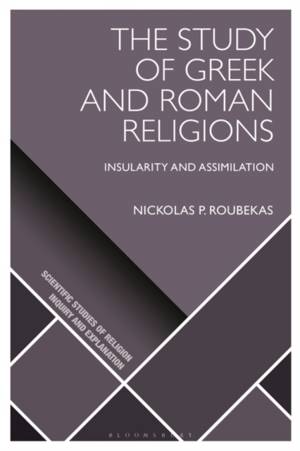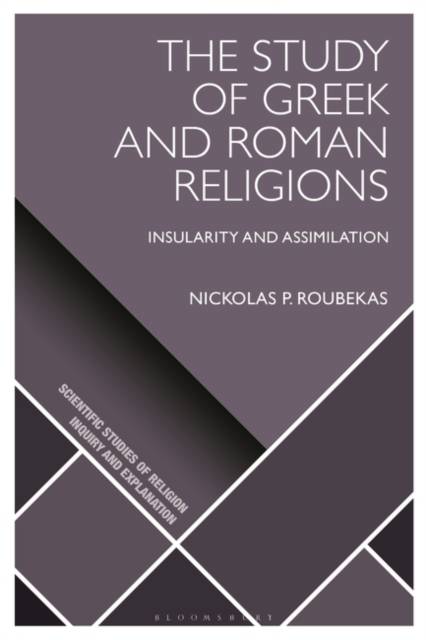
Bedankt voor het vertrouwen het afgelopen jaar! Om jou te bedanken bieden we GRATIS verzending (in België) aan op alles gedurende de hele maand januari.
- Afhalen na 1 uur in een winkel met voorraad
- In januari gratis thuislevering in België
- Ruim aanbod met 7 miljoen producten
Bedankt voor het vertrouwen het afgelopen jaar! Om jou te bedanken bieden we GRATIS verzending (in België) aan op alles gedurende de hele maand januari.
- Afhalen na 1 uur in een winkel met voorraad
- In januari gratis thuislevering in België
- Ruim aanbod met 7 miljoen producten
Zoeken
€ 67,95
+ 135 punten
Uitvoering
Omschrijving
How should ancient religious ideas be approached? Is "religion" an applicable term to antiquity? Should classicists, ancient historians, and religious studies scholars work more closely together?
Nickolas P. Roubekas argues that there is a disciplinary gap between the study of Greek and Roman religions and the study of "religion" as a category-a gap that has often resulted in contradictory conclusions regarding Greek and Roman religion. This book addresses this lack of interdisciplinarity by providing an overview, criticism, and assessment of this chasm. It provides a theoretical approach to this historical period, raising the issue of the relationship between "theory of religion" and "history of religion," and explores how history influences theory and vice versa. It also presents an in-depth critique of some crucial problems that have been central to the discussions of scholars who work on Graeco-Roman antiquity, encouraging us to re-examine how we approach the study of ancient religions.
Nickolas P. Roubekas argues that there is a disciplinary gap between the study of Greek and Roman religions and the study of "religion" as a category-a gap that has often resulted in contradictory conclusions regarding Greek and Roman religion. This book addresses this lack of interdisciplinarity by providing an overview, criticism, and assessment of this chasm. It provides a theoretical approach to this historical period, raising the issue of the relationship between "theory of religion" and "history of religion," and explores how history influences theory and vice versa. It also presents an in-depth critique of some crucial problems that have been central to the discussions of scholars who work on Graeco-Roman antiquity, encouraging us to re-examine how we approach the study of ancient religions.
Specificaties
Betrokkenen
- Auteur(s):
- Uitgeverij:
Inhoud
- Aantal bladzijden:
- 192
- Taal:
- Engels
- Reeks:
Eigenschappen
- Productcode (EAN):
- 9781350336247
- Verschijningsdatum:
- 22/02/2024
- Uitvoering:
- Paperback
- Formaat:
- Trade paperback (VS)
- Afmetingen:
- 156 mm x 234 mm
- Gewicht:
- 272 g

Alleen bij Standaard Boekhandel
+ 135 punten op je klantenkaart van Standaard Boekhandel
Beoordelingen
We publiceren alleen reviews die voldoen aan de voorwaarden voor reviews. Bekijk onze voorwaarden voor reviews.









